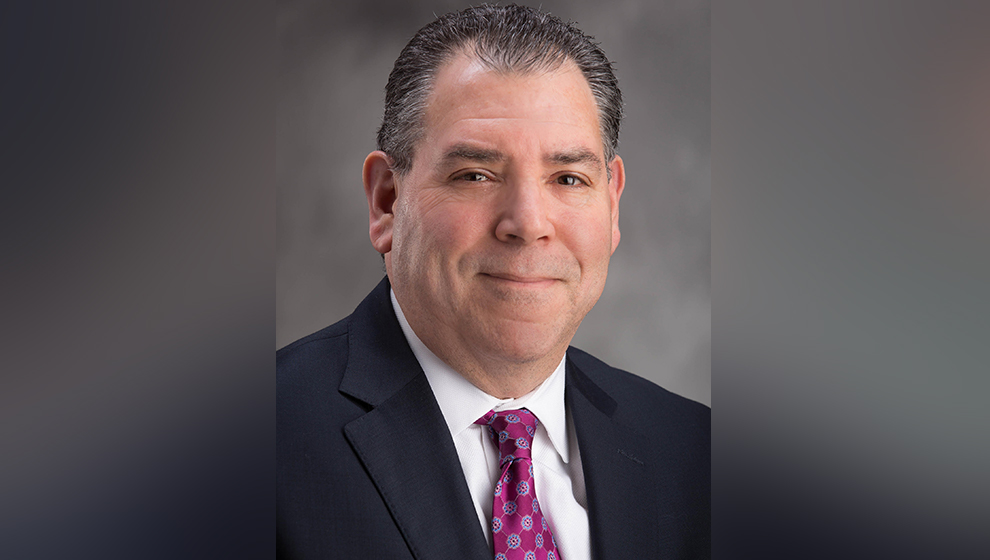In this article we hear from Alan Hochheiser, principal at Maurice Wutscher, who sheds light on how bankruptcy and fraud litigation is developing in the lead-up to 2023. What trends are emerging, and what questions remain?
Could you please give a broad overview of the state of bankruptcy and fraud litigation in your jurisdiction?
The current state of bankruptcy litigation is different from what we have seen in the past. As a bankruptcy practitioner for over 30 years, I have seen several highs and lows in the number of bankruptcy filings. In 2021, bankruptcy filings were at their lowest levels since the mid-1980s. There were fewer than 400,000 filings nationally. Through the first half of 2022, filings have remained stagnant. What we can project for the rest of 2022 and into 2023 will depend on many factors, including the state of the economy, interest rates, the job market, the availability of credit, and bankruptcy legislation.
We should also not discount the results of the midterm elections in November. Depending on the makeup of Congress we may see either consumer- or creditor-friendly legislation. The role of the Consumer Financial Protection Bureau could undergo a major change.
What recent rulings in this area of law have the potential to set significant precedents?
The US Supreme Court has become more active in hearing bankruptcy cases over the last few years. Last year, the Supreme Court issued a ruling in City of Chicago v. Fulton that had an immediate impact on debtors and creditors in Chapter 13 cases. The Court held that creditors do not violate the automatic stay by retaining possession of property obtained pre-petition when the case is filed.
Although the case dealt with automobiles, it has far-reaching effect on other types of property including funds frozen on bank attachments. Numerous courts around the county are addressing the fallout from this decision. These rulings will cause both creditors and debtors to rethink their strategies when a case is initially filed. We expect to see an increase in the number of motions for turnover of property.
In what ways has the COVID-19 pandemic affected the bankruptcy and fraud litigation landscape?
With the decreased number of bankruptcy filings, debtors’ attorneys and trustees are looking at ways to maintain or increase revenue. As a result, we have seen an increase in litigation of preference and fraudulent transfer actions, along with adversary complaints for violations of the Fair Debt Collection Practices Act and the Telephone Consumer Protection Act.
The US Supreme Court has become more active in hearing bankruptcy cases over the last few years.
The practice itself has changed with the utilisation of video and telephonic hearings. Cases that may not have been pursued due to cost are now being filed. If you can conduct hearings from your desk instead of traveling to court and waiting through dockets, it becomes much more economical for the client. We have seen creditors proceeding with more non-dischargeable actions. In Chapter 11 proceedings there has been greater representation at first meetings of creditors as attorneys do not need to travel to obtain information and question the debtor on more routine cases.
Have these effects now died down, or have other effects proved to be permanent?
As foreclosure and eviction moratoriums on the federal and state level have been lifted, we have not seen the so-called tsunami of bankruptcy filings that many had expected. I suspect, as more of the foreclosure cases get to the sale stage, we will see a bit of an uptick in consumer bankruptcy filings. In addition, the increase in interest rates could have a major effect on consumers as the payments on variable rate loans will rise. Coupled with supply chain issues and rising consumer prices for food, gas and other durable goods, higher rates may force consumers to either seek a fresh start through a Chapter 7 or a reorganisation under Chapter 13.
What other noteworthy challenges currently exist for legal counsel and their clients in this area?
The biggest challenge for legal counsel and their clients is uncertainty. Challenges facing creditors are whether losses are going to grow, how to address staffing concerns to handle an increase in the number of bankruptcy filings, and the financial ramification from additional charge-offs due to defaults.
For creditors’ attorneys, the challenge will be to staff properly to handle any increase in fillings. For the debtor, it is when it will be the right time to file the bankruptcy. Can the debtor be more successful attempting a workout with creditors? Is the debtor able to seek modification or forbearance to prevent foreclosures or repossessions of vehicles? For debtors’ attorneys, the challenge is how to run a practice with a substantially lower number of cases. Are debtors’ firms looking to expand to different types of work, reduce staffing and consider mergers?
Can you share any other emergent trends that have been shaping bankruptcy and fraud litigation this year?
Federal Rule of Bankruptcy Procedure Rule 3001. This is becoming the basis for increased litigation as it pertains to the filing of proof of claims. The issue revolves around the requirement that the creditor break out any interest, fees and costs included in the balance in the filed proof of claim. The issue for creditors, and specifically debt buyers, is that when the obligations are purchased, the debt buyer is purchasing principal. On revolving credit obligations at the end of the billing cycle, any interest, fees and costs are rolled into principal.
Debtors are bringing actions when interest, fees and costs are not provided, stating that the original obligation, if not current when the bankruptcy was filed, does break out those amounts. The actions are commenced as violations of the FDCPA or objections to claims. Debtors are seeking damages and an award of attorney’s fees. Some are even seeking to certify a class action. This issue will continue to evolve, and it may take an amendment of the bankruptcy code or a Supreme Court ruling to stem the tide of litigation in this area. Unfortunately, that is going to take some time.
The biggest challenge for legal counsel and their clients is uncertainty.
Another area of increased visibility is Subchapter V filings. Subchapter V filings are for smaller businesses with liabilities not exceeding $7.5 million. This area has grown as, prior to COVID-19, Subchapter V debtors had a ceiling of $2.6 million in liabilities. Early in the pandemic, Congress provided the SBRA (Small Business Relief Act) with some Covid-19-related amendments. One amendment increased the total amount of debt that a Subchapter V debtor could have to $7.5 million. Those amendments expired in March of this year, but Congress recently enacted a two-year extension. Subchapter V provides advantages for small businesses verses a regular Chapter 11 reorganisation. The major advantages are reductions in cost and time. No US Trustee fees are required to be paid in a Subchapter V. This could save a company tens of thousands of dollars over the life of a bankruptcy.
The timelines for filing a plan are much shorter, which expedites the reorganisation. There is no formation of a creditors’ committee, so the debtor is not paying for those legal fees and potentially resolving the committee’s concerns with the plan. Creditors should prefer Subchapter V filings as a plan will be ready for confirmation earlier, thus expediting the payment of claims. The amount to be paid under the plan should be higher, as the debtor should have more money available to distribute to unsecured creditors due to lower administration costs when compared to Chapter 11.
What should legal counsel be aware of regarding consumers who have filed for bankruptcy protection?
The most important thing is to have procedures in place for when you receive notice of a bankruptcy filing. The automatic stay goes into effect immediately and any action to collect on a debt after the filing of a bankruptcy case could subject the creditor and counsel to sanctions. Debtors’ attorneys are very litigious when it comes to stay violations. Unfortunately, it seems that the playing field has changed dramatically over the last few years.
In the past, if there was an issue regarding a potential stay violation, debtors’ counsel would first reach out to the creditor or counsel to advise of the bankruptcy filing, ask for the collection activity to cease, and put the debtor back to the status quo. Now, we see motions to show cause for violating the stay or adversary proceedings a day after an alleged violation. These motions seek recovery of actual damages, punitive damages, attorney’s fees and costs. Even though the violation could have been resolved with a call, counsel are incentivised to file motions and potentially recover attorney’s fees. Some courts are taking a very tough stand and issuing thousands of dollars in sanctions for violations of the stay.
The second area is to make sure you are conscious of all deadlines. Under the Federal Rules of Bankruptcy Procedure, the US Bankruptcy Code, and case law, bankruptcy deadlines are unforgiving. If you miss a deadline, more than likely it will be a complete bar to proceeding with a specific event. This could be filing of a proof of claim. If your claim is not timely filed and an objection is filed, it is highly unlikely that you will be paid. Failure to file complaints to determine dischargeability of debt or to make an objection to discharge is a total bar, and the underlying debt will be discharged.
[ymal]
The last thing is to be aware of your local rules. Some creditors’ attorneys practice on a national basis. Filing claims can be done without being an attorney. Make sure you are familiar with any local procedures as it may cause your claim to be disallowed.
As a highly skilled practitioner in creditors’ rights and bankruptcy law, what advice would you offer to less experienced legal professionals looking to specialise in this side of law?
Learn as much as you can about the area of law. When I was a young lawyer, I had the opportunity to sit in court rooms around the Northern District of Ohio on extended bankruptcy dockets. That is where I gained knowledge of Chapter 11 proceedings. Listening to some of the best lawyers in the field argue complex cases accelerated my understanding of bankruptcy law. As I became more involved in Chapter 11 cases, I continued to utilise that knowledge. Do not lose the opportunity to learn by sitting in a court room.
My second recommendation is to ask questions. You learn by asking questions. Bankruptcy law is not straightforward and there are intricacies in every statute or rule. Utilise the resources that you have available, whether in your own firm or in the industry. If you can, find a mentor. They are always helpful not only in answering legal questions but in navigating the legal profession.
My last recommendation is communication. It is the key to being a successful attorney. Make sure you are communicating with your client on a regular basis so they are aware of the status of their case. Failing to keep your client updated could spell doom for the attorney-client relationship. You can do an excellent job handling a file for the client, but if they do not know what is happening on a regular basis, all that good work could go to waste. In today’s business environment we know that electronic communications seem to control the day, but picking up the phone and talking to clients always has a major upside.
In your own view, how is this sector likely to develop in the latter half of 2022 and in the years to come?
Projecting the future of the bankruptcy arena is not an easy task. As I have previously indicated, we are coming off a 30-year low in bankruptcy filings. The unknowns are many. Will the economy avoid a recession or will negative economic trends continue or even worsen? Will there continue to be federal government intervention and relief? Will employers be able to find employees to fill positions? Will interest rates continue to rise? Will there be changes to the bankruptcy code that will steer consumers to file bankruptcy or to avoid it? Will the federal government forgive student loans? Will student loans finally be dischargeable in bankruptcy proceedings without a hardship discharge? Will the Supreme Court continue to hear bankruptcy cases and drive future litigation? This is just a sample of the many issues that may influence the future of bankruptcy cases and litigation.
What we do know is that bankruptcy filings will continue. Bankruptcy serves as an opportunity for consumers who are struggling to obtain a fresh start. It also allows businesses to reorganise and attempt to thrive in their communities. We also know that litigation within the bankruptcy cases will continue. Maurice Wutscher LLP is well equipped to protect its clients’ interests no matter what type of bankruptcy cases or litigation comes along.
Alan Hochheiser, Principal
23611 Chagrin Blvd., Suite 207, Beachwood, OH 44122
Tel: +1 216-220-1129
E: ahochheiser@mauricewutscher.com
Alan Hochheiser is a principal at Maurice Wutscher LLP, where he advises and represents businesses, regional and national banks, credit unions, equipment lessors and other lenders, as well as secured and unsecured creditors. Among his accomplishments, he has successfully resolved non-dischargeable claims based upon fraud conversion and breach of fiduciary issues and has successfully handled the assumption of leases in the bankruptcy of a major airline. He currently serves as chair of the ABA Business Law Section’s Consumer Bankruptcy Committee.
Maurice Wutscher LLP is a national business and financial services law firm representing Fortune 500 and midsize companies, financial institutions, and other law firms for the successful resolution of their complex legal issues and compliance matters. The firm’s practice areas and areas of expertise include appellate matters, business formation and transactions, class action litigation, commercial, construction, consumer credit and employment litigation, contested bankruptcies and foreclosures, and many others.





















